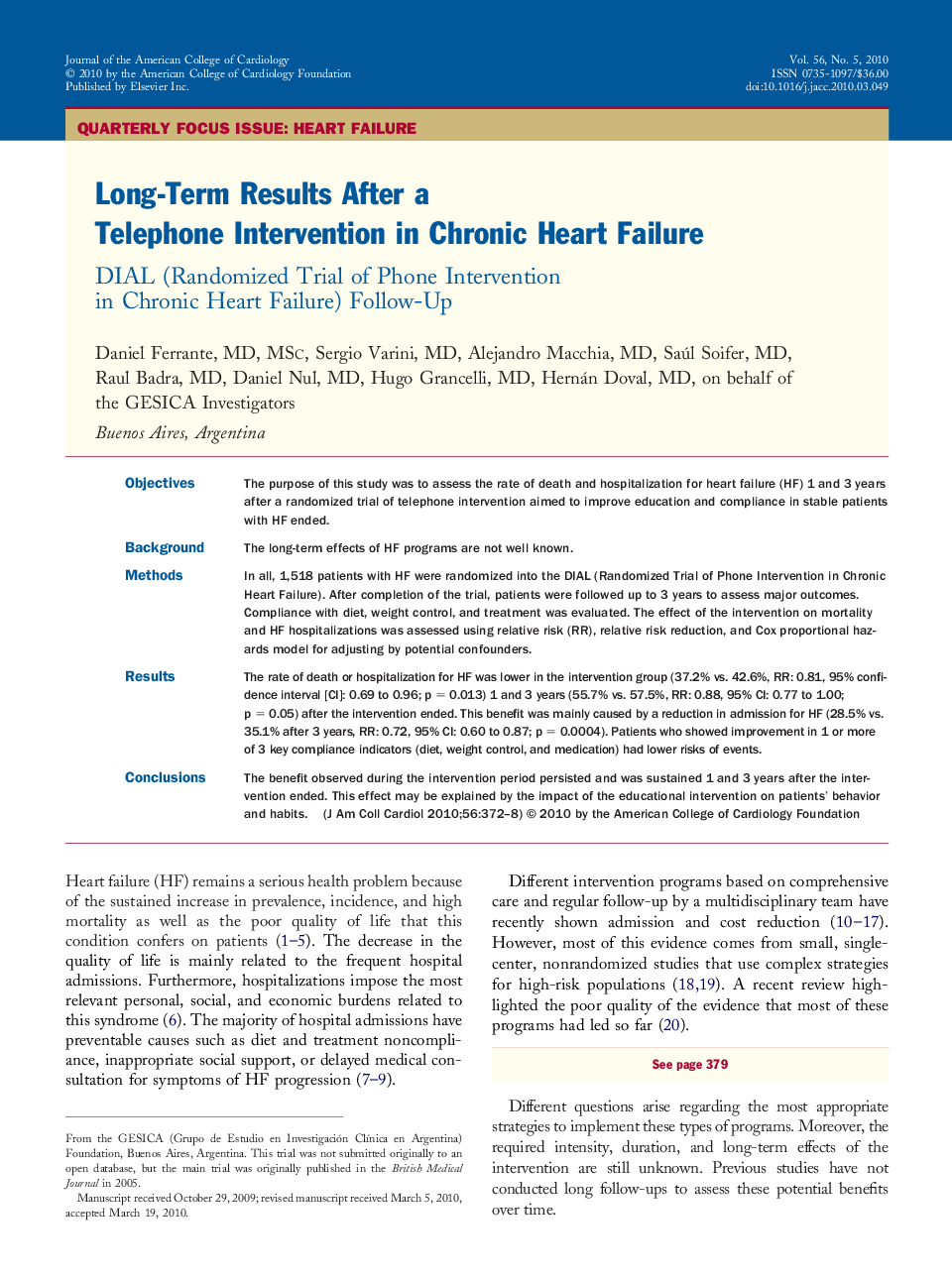| کد مقاله | کد نشریه | سال انتشار | مقاله انگلیسی | نسخه تمام متن |
|---|---|---|---|---|
| 2948532 | 1577307 | 2010 | 7 صفحه PDF | دانلود رایگان |

ObjectivesThe purpose of this study was to assess the rate of death and hospitalization for heart failure (HF) 1 and 3 years after a randomized trial of telephone intervention aimed to improve education and compliance in stable patients with HF ended.BackgroundThe long-term effects of HF programs are not well known.MethodsIn all, 1,518 patients with HF were randomized into the DIAL (Randomized Trial of Phone Intervention in Chronic Heart Failure). After completion of the trial, patients were followed up to 3 years to assess major outcomes. Compliance with diet, weight control, and treatment was evaluated. The effect of the intervention on mortality and HF hospitalizations was assessed using relative risk (RR), relative risk reduction, and Cox proportional hazards model for adjusting by potential confounders.ResultsThe rate of death or hospitalization for HF was lower in the intervention group (37.2% vs. 42.6%, RR: 0.81, 95% confidence interval [CI]: 0.69 to 0.96; p = 0.013) 1 and 3 years (55.7% vs. 57.5%, RR: 0.88, 95% CI: 0.77 to 1.00; p = 0.05) after the intervention ended. This benefit was mainly caused by a reduction in admission for HF (28.5% vs. 35.1% after 3 years, RR: 0.72, 95% CI: 0.60 to 0.87; p = 0.0004). Patients who showed improvement in 1 or more of 3 key compliance indicators (diet, weight control, and medication) had lower risks of events.ConclusionsThe benefit observed during the intervention period persisted and was sustained 1 and 3 years after the intervention ended. This effect may be explained by the impact of the educational intervention on patients' behavior and habits.
Journal: Journal of the American College of Cardiology - Volume 56, Issue 5, 27 July 2010, Pages 372–378